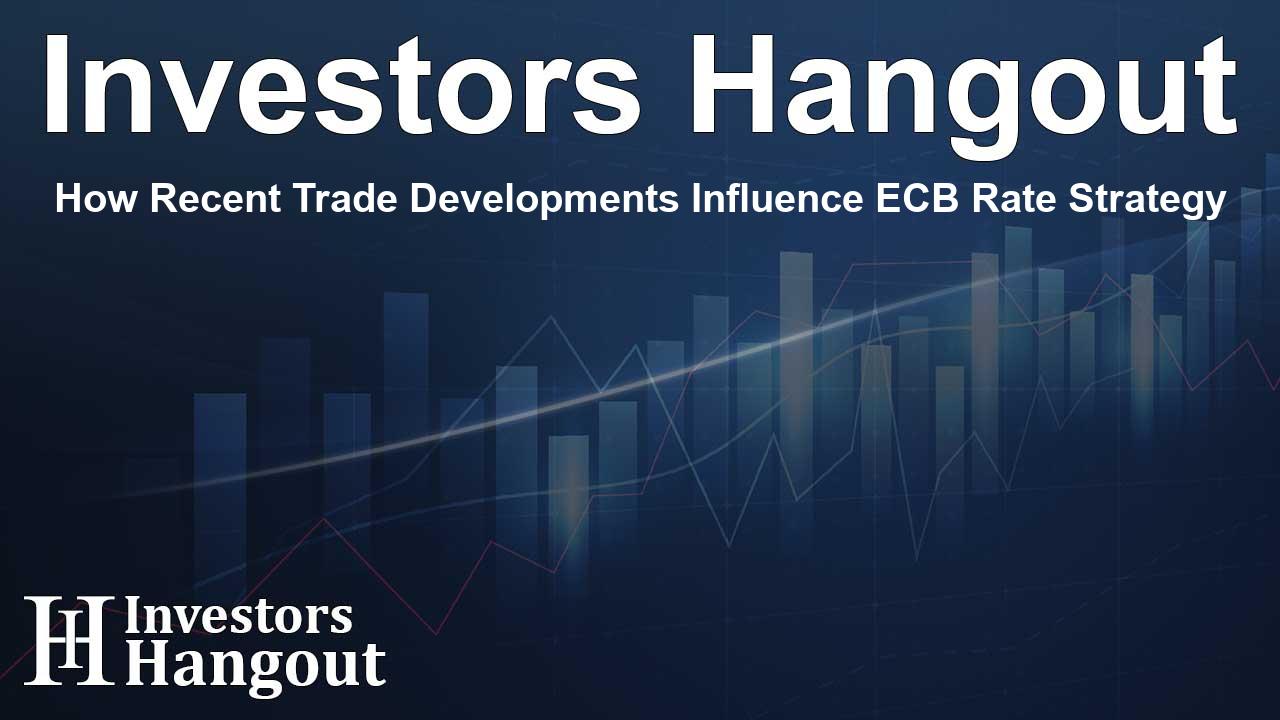How Recent Trade Developments Influence ECB Rate Strategy

Impact of Easing Trade Tariffs on ECB Rate Decisions
The recent easing of tariff fears is likely providing European Central Bank policymakers with a sense of relief. The absence of blanket trade tariffs from the new U.S. administration has led many to believe that a rate cut from the ECB is imminent. In the world of finance, such clarity can often translate into significant market movements.
Market Reactions to Trade Policy Changes
The more cautious approach from the U.S. administration has influenced various economic indicators. With President Trump opting not to impose extensive trade barriers immediately, the euro has appreciated, oil prices have seen a downturn, and yields have lowered. These changes indicate growing confidence among investors that the ECB may continue with its strategy of rate cuts.
Investor Sentiment and Rate Cut Predictions
Recently, financial investors had been re-evaluating their expectations regarding ECB rate cuts. Concerns about a strong dollar, rising energy prices, and potential retaliatory measures from the EU had previously led to a more pessimistic outlook for the ECB's monetary policy. However, the market sentiment has shifted, and many investors now fully anticipate four rate cuts this year.
Understanding the Economic Landscape
The strength of the dollar, particularly since November's U.S elections, has driven changes in market expectations. As the dollar’s value increases, European inflation risks also rise due to higher pricing of energy, which is often dictated by dollar rates. This relationship proves pivotal in the ECB's decision-making processes.
Future Predictions Amid Policy Uncertainty
Going forward, investors remain on high alert regarding the potential for rapid changes in U.S. trade policies under Trump. History has shown that shifts in policy can occur with little warning, reflecting unpredictability in economic strategies. Some economists contend that despite a hardening U.S. stance, the ECB will likely need to persist with rate cuts to stabilize the economy.
Analysis of Trump’s Economic Policies
While tariffs might only slightly reduce the EU's significant current account surplus, they threaten to inhibit economic growth. The deflationary pressures resulting from potential tariffs may outweigh any inflationary effects they create. Some analysts argue that Trump's policies could actually bolster the ECB’s resolve to lower rates due to anticipated adverse impacts on growth.
Outlook for ECB Rate Cuts
In light of these developments, agencies such as Nordea predict that the ECB might pursue three more rate cuts of 25 basis points each. Additionally, it is essential to note that the risks may tilt towards further cuts continuing beyond the anticipated timeline if economic forecasts worsen. All these factors contribute to an evolving landscape for the ECB and its policy decisions.
Frequently Asked Questions
What are the expected rate cuts from the ECB this year?
The market anticipates four rate cuts from the ECB this year, reflecting investor confidence following recent U.S. trade policy changes.
How do dollar fluctuations impact European inflation?
A stronger dollar can lead to increased costs for energy priced in dollars, which in turn can raise inflation rates in Europe.
What is the relationship between trade policies and ECB actions?
Trade policies, especially from the U.S., can significantly influence the ECB's monetary policy, as tariffs and trade tensions affect economic forecasts.
Why do economists believe the ECB will continue cutting rates?
Some economists believe that pressure on growth from tariffs will compel the ECB to continue lowering rates to stabilize the economy.
What are the potential risks of further ECB rate cuts?
Further rate cuts may help support the economy, but they also risk leading to decreased savings rates and heightened concerns about inflation in the long term.
About The Author
Contact Dominic Sanders privately here. Or send an email with ATTN: Dominic Sanders as the subject to contact@investorshangout.com.
About Investors Hangout
Investors Hangout is a leading online stock forum for financial discussion and learning, offering a wide range of free tools and resources. It draws in traders of all levels, who exchange market knowledge, investigate trading tactics, and keep an eye on industry developments in real time. Featuring financial articles, stock message boards, quotes, charts, company profiles, and live news updates. Through cooperative learning and a wealth of informational resources, it helps users from novices creating their first portfolios to experts honing their techniques. Join Investors Hangout today: https://investorshangout.com/
The content of this article is based on factual, publicly available information and does not represent legal, financial, or investment advice. Investors Hangout does not offer financial advice, and the author is not a licensed financial advisor. Consult a qualified advisor before making any financial or investment decisions based on this article. This article should not be considered advice to purchase, sell, or hold any securities or other investments. If any of the material provided here is inaccurate, please contact us for corrections.
